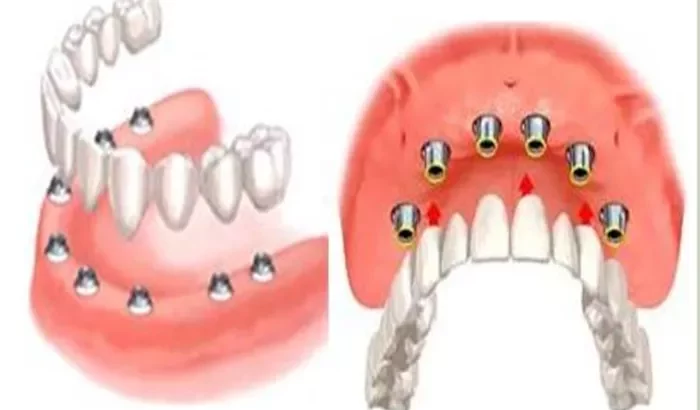Dental implants are a popular and effective method for replacing missing teeth. They offer a durable, stable, and aesthetically pleasing solution that can restore functionality and confidence. However, the recovery process after dental implants requires careful attention to ensure proper healing and osseointegration. One crucial aspect of recovery is diet. This article aims to provide a detailed introduction to what to eat after dental implants, offering practical advice and tips to ensure a smooth and successful recovery.
Introduction: The Importance of Diet After Dental Implants
Dental implants involve a surgical procedure where artificial tooth roots are placed into the jawbone. These implants then act as a foundation for a replacement tooth or teeth. The success of dental implants largely depends on the proper healing and osseointegration of the implant with the surrounding bone. Diet plays a vital role in this process, as the foods we eat can affect the healing of the surgical site and the overall success of the implants.
After dental implants, the surgical site will be sensitive and may require time to heal. Eating the right foods can help promote healing, reduce discomfort, and prevent complications. Conversely, eating the wrong foods can slow down healing, increase the risk of infection, and even cause damage to the implants. Therefore, it is essential to follow a specific diet after dental implants to ensure a smooth and successful recovery.
What to Eat After Dental Implants
After dental implants, patients should follow a soft food diet for the first few days to weeks, depending on the individual’s healing progress. This diet consists of foods that are easy to chew and swallow, minimizing the risk of damaging the surgical site or implants. Here are some examples of foods to eat after dental implants:
Blended Foods: Foods that have been blended or pureed can be easily consumed without requiring much chewing. Examples include soups, smoothies, yogurt, and mashed potatoes.
Soft Fruits and Vegetables: Soft fruits and vegetables, such as bananas, avocados, and cooked carrots, can be eaten without causing discomfort to the surgical site. It is important to avoid crunchy or hard fruits and vegetables, as they may damage the implants or surgical site.
Soft Proteins: Lean proteins, such as chicken, fish, and tofu, are essential for healing and should be included in the diet. However, they should be cooked until they are very tender and easy to chew.
Dairy Products: Dairy products, such as milk, cheese, and cottage cheese, are high in calcium and protein, which are essential for bone healing. They should be consumed in soft or liquid forms to avoid any discomfort.
Starchy Foods: Starchy foods, such as rice, pasta, and bread, can be easily chewed and swallowed. However, it is important to avoid crunchy or hard versions of these foods, such as breadsticks or crusty bread.
Cool Foods: Eating cool or lukewarm foods can help reduce discomfort and swelling in the surgical site. Avoid hot foods, as they may irritate the area.
What to Avoid After Dental Implants
In addition to knowing what to eat after dental implants, it is also important to know what to avoid. Here are some foods that should be avoided during the recovery period:
Hard and Crunchy Foods: Foods that are hard or crunchy, such as nuts, raw vegetables, and candy, can damage the implants or surgical site. Avoid these foods until fully healed.
Sticky Foods: Sticky foods, such as caramel, gum, and taffy, can get stuck in the surgical site and cause discomfort or infection. Avoid these foods until healing is complete.
Spicy Foods: Spicy foods can irritate the surgical site and slow down healing. It is best to avoid spicy foods until fully recovered.
Alcoholic Beverages: Alcohol can interfere with healing and increase the risk of infection. Avoid drinking alcoholic beverages for at least a week after the procedure.
Carbonated Beverages: Carbonated beverages can irritate the surgical site and slow down healing. It is best to stick to water and other non-carbonated beverages during the recovery period.
Tips for Eating After Dental Implants
In addition to knowing what to eat and what to avoid, here are some tips for eating after dental implants:
Chew on the Opposite Side: To avoid putting pressure on the surgical site, try to chew food on the opposite side of your mouth. This will help reduce discomfort and prevent damage to the implants.
Use a Straw: If drinking liquids, use a straw to bypass the surgical site and reduce irritation.
Take Small Bites: Take small bites of food and chew slowly to avoid putting too much pressure on the surgical site.
Stay Hydrated: Drink plenty of water to stay hydrated and promote healing. Avoid sugary drinks, as they can slow down healing and increase the risk of infection.
Follow Your Dentist’s Instructions: Your dentist will provide specific instructions on what to eat and avoid after your dental implants. Follow these instructions carefully to ensure a smooth and successful recovery.
Conclusion
In conclusion, diet plays a crucial role in the recovery process after dental implants. Eating the right foods can promote healing, reduce discomfort, and prevent complications. Conversely, eating the wrong foods can slow down healing, increase the risk of infection, and even cause damage to the implants. Therefore, it is essential to follow a specific diet after dental implants, consisting of soft, easy-to-chew foods that are high in nutrients. By carefully selecting what to eat and avoid, patients can ensure a smooth and successful recovery from their dental implant procedure.
Related topics:

